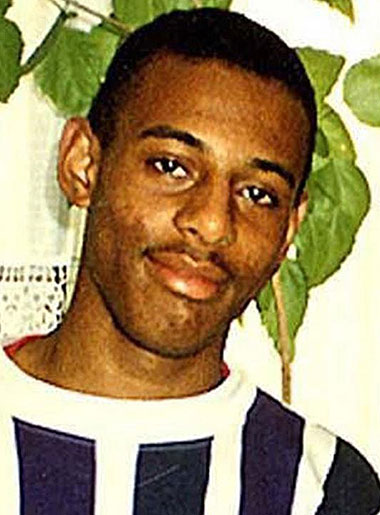4 January 2012
Stephen Lawrence case – Lessons for Irish law-makers, says network
THE Irish Network Against Racism (ENAR Ireland) has welcomed the convictions yesterday (Tuesday) at London’s Old Bailey of Gary Dobson and David Norris for the racist murder of black teenager Stephen Lawrence 18 years ago.
Today (Wednesday) Gary Dobson was sentenced to a minimum of 15 years two months; David Norris was sentenced to a minimum of 14 years three months.
Catherine Lynch, ENAR National Co-ordinator, said yesterday:
Our thoughts are with the Lawrence family who have fought for near two decades to find justice for their son. The case highlighted failures in the British criminal justice system to deal with racist violence and crime.
The Irish Network Against Racism argues that there are also weaknesses in the Irish system. Government and law enforcers alike must take racist incidents seriously. The Network calls on the Government to introduce legislation that deals with racist crime now.
There is currently no provision within Irish legislation to deal with racist crime. It is at the discretion of judges to consider racist motive as a factor when determining a sentence in a case; these cases are treated like any other case.
Making racism a crime sends the message that racism is not acceptable in Irish society and helps secure justice for victims. The Network calls on the Government to prioritise legal reform to deal with racism adequately in criminal law.
The Network said the United Nations has criticised the state’s response to racist incidents.
Early last year the UN Committee on the Elimination of all Forms of Racial Discrimination (CERD) noted with regret that the review of the Incitement to Hatred Act 1989 had stalled. It also recommended that the racist motivation be consistently taken into account as an aggravating factor in sentencing practice for criminal offences. It recommended that the state take appropriate steps to encourage the reporting of racist incidents and crimes.
Two-thirds of the incidents reported to the Network, the national independent monitoring organisation, involve racist violence and crime yet Ireland still struggles to monitor racist incidents and legal reform has not kept up with the changes in Irish society.
Catherine Lynch said:
The reality for ethnic minorities in Ireland is that racism is a daily experience. It is very worrying to see that people cannot feel safe even at home. A number of the incidents reported to us took place just outside the person’s house or on the walk home. Public transport is also an area where we see racist incidents, with taxi drivers and bus drivers alike being the targets of racist abuse. A seemingly minor incident can escalate into a very serious one. We need to be vigilant and monitor all types of incident. A racist incident impacts on the individual and on the whole community. Striking at the core of a person’s identity, it is an attack on who you are.
The Network says that racist incidents are often not reported to police and sometimes people feel that they may not be taken seriously. Only one in six of the people who came to the Network had reported the incident to the Garda. Under-reporting is an issue internationally. The Network is working with NGOs and the authorities to try to make sure that there is effective monitoring of racist incidents.
This requires commitment from Government. Legislation plays a key role in addressing racism.
Follow us on Facebook
An Phoblacht on Twitter
Uncomfortable Conversations

An initiative for dialogue
for reconciliation
— — — — — — —
Contributions from key figures in the churches, academia and wider civic society as well as senior republican figures





